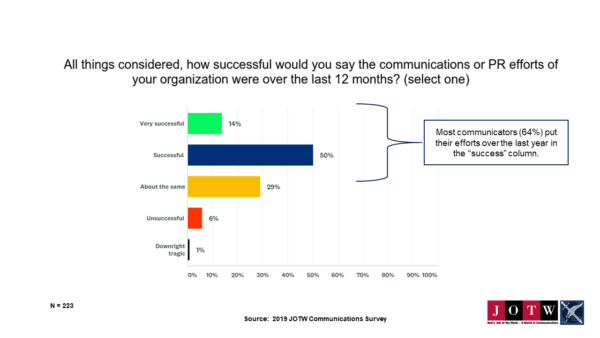There is a long-running joke in public relations (PR) circles, that it takes more time and effort to get press release through the approval process than it does to write one in the first place. Unfortunately, after going through such machinations, the bolder parts of these statements tend to get stripped out.
As all politics in business are local too, and so even the best PR pros have to pick and choose when they can push back. As a result, they start writing materials so that they’ll appeal to an executive and get through the review process with less friction, rather than composing compelling prose that appeals, engages or inspires a target audience.
Everyone says they are “a leading provider” and follow that up with lukewarm declarations and quotes that read “we are very pleased.” That’s no way to stand out in the clutter of modern digital communications and it’s certainly not thought leadership. Indeed, taking a little bit of risk in the name of boldness, humility and humanity can go a long way in separating your business from the competition.
I was reminded of this over the course of analyzing data from the 2019 JOTW Communications Survey (embedded below). It’s the second year in a row, I’ve had the good fortune of teaming up with Ned Lundquist and his Job of the Week Newsletter to poll PR and corporate communications professionals.
Among the 20 or questions, we posed was this one:
“All things considered, how successful would you say the communications or PR efforts of your organization were over the last 12 months?”
Most respondents (64%) put their efforts over the last year in the success category, including a subset of 14% who said their efforts were very successful. About one third said (29%) indicated their work had about the same effect and the rest (7%) said their efforts were not successful.
The real insight came, however, with the associated sentiment. We asked “Why?” as an open-ended and optional follow-up question. Seventy-five respondents – about one-third of the total – wrote in answers.
Those that said their efforts were successful or very successful wrote:
- “Some really talented people, who work cooperatively with one another…and a brilliant CMO who isn’t afraid to take chances.”
- “My CEO seems more receptive to my counsel. In addition, a budget increase has also made our efforts more effective.”
- “We tried some new things. We had some success, but I think there is more we can do to build our brand.”
Those that said their efforts were about the same wrote:
- “New boss who ‘doesn’t get it’ and fears it.”
- “Limited resources and restrictive budgets. Lack of priority and willingness to expand communication channels.”
- “Difficult to answer but at its core, apathy from the target audience.”
Those that said their efforts were unsuccessful wrote:
- “Overly cautious posture.”
- “Lack of a commitment by senior leadership.”
- “We’re in a very competitive market.”
In my assessment, the sentiment suggests those that take chances are more likely to say their efforts were successful than those with less tolerance for risk. Business leaders understand risk and reward, and so perhaps presenting feedback – from messaging to measurement – in such framing can go a long way towards improving PR or communications results for the next 12 months as well.
* * *
The full survey is embedded below and is freely available for download as a PDF document from SlideShare. A total of 223 communications and public relations (PR) professionals completed the survey which was conducted in January and February 2019. Some 68% of respondents report holding in-house communication roles and 90% have 10 years or more experience in the industry.
Image credit: Pixabay
